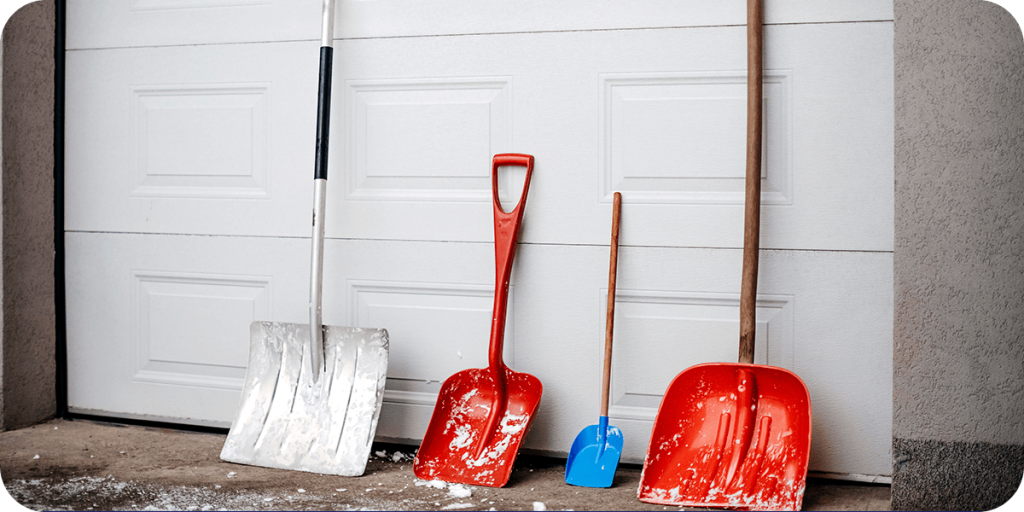
Taking care of your garage door can seem like an overwhelming, time-intensive task, but with the right routine and seasonal care tips, you can easily keep your door in excellent shape all year long. Seasonal garage door maintenance is vital to keeping your garage door in tip-top shape. Summer and winter tend to be the most taxing seasons for garage doors due to the hotter and cold conditions they bring.
Every homeowner needs to know the valuable garage door care tips in this guide. Learn how to prepare your garage door for summer and winter.
Summertime is when everyone is out and about and having a great time outdoors. It’s also when your garage door needs the most time and attention, especially because everyone will see it more during those sunny days.
It’s easy to forget about your garage door during summer, but it still needs a lot of care. The key to excellent garage door care is to have a process. Follow these eight handy tips to maintain your garage door all summer easily.
Looking for signs of damage or excessive wear is a proactive way to maintain your garage door. Inspect your door for rust, dents, scratches, loose components and anything else that seems off. You can avoid expensive repairs by checking your garage door’s condition frequently. While you can do quick looks daily, you should thoroughly inspect your door at least once a season.
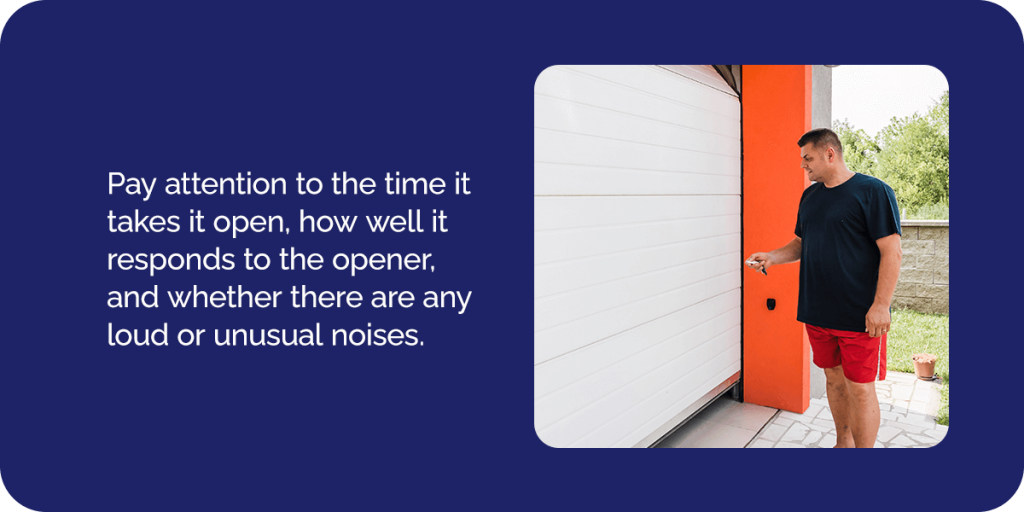
Test your garage door often to make sure it’s working properly. It’s easy to miss small details during regular use or even an inspection, but you’ll know whether your garage door works if you test it. Pay attention to the time it takes it open, how well it responds to the opener, and whether there are any loud or unusual noises.
Improper operation and loud noises are telltale signs that something might be wrong. Your door could be unsafe if there are any issues, and attempting to fix it yourself can be dangerous. It’s best to call a professional when something seems off. Hiring a professional can maintain the safety of your door and help you avoid potentially costly repairs.
Routinely checking and testing your garage door is one thing, but you must also ensure all the moving parts are well-lubricated. Keeping your hinges, tracks and rollers lubricated ensures they can handle being used all summer long. Lubrication helps your door open smoothly and quietly. Noises like screeching signify problems, and lubrication prevents them. When lubricating, using a three-in-one type of oil instead of grease is best. This oil prevents corrosion and rusting and minimizes friction, keeping your hardware well-maintained and reducing squeaking and sticking.
You may wonder if you should leave your garage door open in the summer. It is important to ventilate your garage during the summer heat, but leaving it open might not be the best option.
Heat builds up quickly in an unventilated garage, damaging your garage door hardware and the things you store in it. Condensation often occurs during the summer because warm air carries a lot of moisture. When the warm air cools, it can’t hold onto that moisture, and condensation forms. Condensation creates a damp environment and can cause mildew, mold and rot.
When the air inside your garage is cooler than the outside air, you should open your garage door if you don’t have adequate vents. When the air is warmer inside your garage than outside and you open the door, the warm air in your garage may cool too much and create condensation. However, you also don’t want your garage to get too hot, so the best advice is to ensure proper passive ventilation and airflow.
Insulation is necessary in both summer and winter but for different reasons. During the summer, insulation helps regulate the temperatures of your garage. Insulation will keep the hot and cool air outside, avoiding condensation and moisture.
Summer is the perfect time to wash your garage door. When the weather is pleasant and the sun is shining, you can turn the chore of washing your garage door into a fun summertime activity.
An effective garage door wash means removing grease, grime and dirt from the surface of your door. A mild soap, some warm water and a sponge or soft cloth are everything you’ll need. Remember to rinse your door throughout the process and at the end. Give it time to dry entirely before using it again. Summer brings the best garage door washing conditions in the year, so make the most of it.
Summer is also the perfect time to give your garage door some fresh paint. Inspect your current paint job — you might not need to repaint the entire door. Touch-ups are all that’s necessary sometimes, though you will likely want to repaint the whole door every so often. Gently scrape or sand any peeled, chipped or discolored parts before adding a new layer of paint to keep your door looking perfect. Make sure to use exterior paint.
Summer storms, high winds and torrential rains can do a number on your garage door. It’s vital to reinforce your door against storms and harsh weather. Closely inspect your door or call a professional to ensure there are no holes in your garage door for water to leak through. Insulation can help fill these holes. Add the appropriate reinforcement to your garage door to protect your belongings.
Reinforce the rubber weather seal strips on the bottom of your garage door. If these seals are broken, cracked or brittle, you should replace them immediately. Weatherstripping is vital for weatherproofing and insulating your garage.
Winter brings cold weather and icy conditions, which can impact the state of your garage door. Winterizing is the best way to maintain your garage door during the winter, which means preparing it for the cold weather the season will bring.
Here’s how to prepare your garage door for winter:
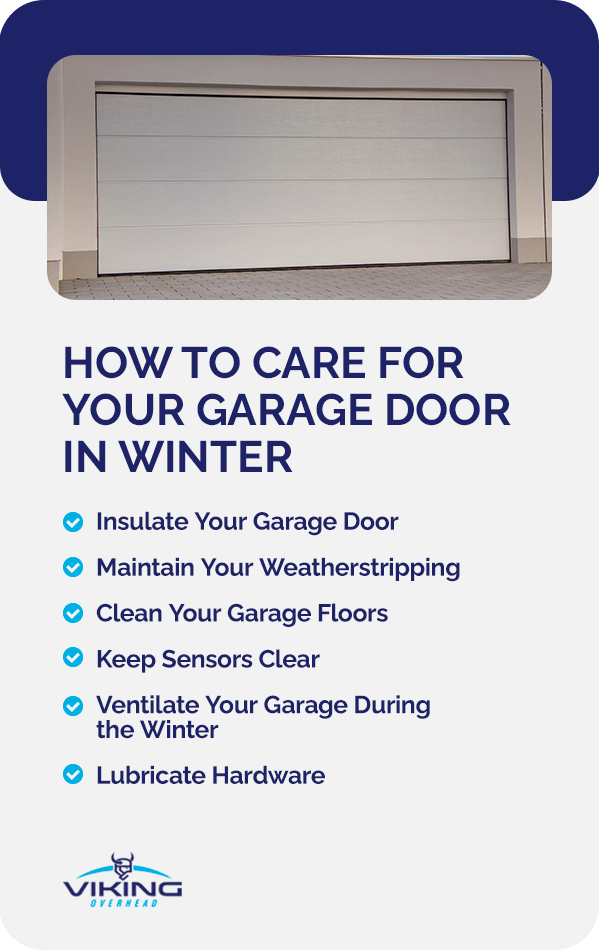
Insulating your garage door is the most fundamental way to maintain it during winter. Properly insulating your garage door during the winter is worth the time and money because it protects your internal garage door hardware from the cold. Metal becomes brittle when cold, and brittle metal can crack, bend and shatter while trying to open your door. These broken parts result in costly repairs and pricey replacements.
A well-insulated garage door will keep the warm air inside and the cold air out. Insulation can also help reduce your energy bills by improving the efficiency of your home’s heating if you have an attached garage.
You should check your garage door’s weatherstripping before winter arrives. Weatherstripping keeps snow, ice and cold air from seeping into your garage. Follow these handy garage door winter seal tips and tricks:
Your garage floor endures more during the winter months. From ice, cold air and rainwater to road salt, vehicle traffic and foot traffic, your floor takes a lot of wear. Your floor’s condition can impact your garage door. A cracked floor can let in cold air and damage your door’s bottom edge every time it closes. Adding weatherstripping or a seal to your door can pad it against small cracks in the floor. Keeping the area under your garage door clear of water, salt and debris also helps protect your floor and door.
Winter fog can get in the way of your sensors and prevent them from working properly. Your safety sensors are a critical part of your garage door and need extra care during the winter. Garage doors are heavy, and if your safety sensors malfunction, your door could close on someone or damage a car.
If your door refuses to close or open during the winter, you might have a disrupted sensor. Keep your sensors clear of fog, dirt, leaves, moisture, ice and snow to ensure they can function properly. If the sensors are clear but still don’t work, they may be misaligned. In this case, it’s best to call a professional to adjust them.
Ventilation is still important during the winter. Moist air condenses on your car’s cold surfaces. This water can freeze and create small cracks and chips. Ventilating your garage prevents this condensation from freezing. If you have a standard door in your garage, opening it and the main garage door can create a cross-ventilation effect to help the water on your car evaporate and prevent it from freezing overnight. Try doing this for about 10 minutes once or twice daily.
Your metal garage door hardware is vulnerable to the cold. In low temperatures, metal becomes brittle and can break more easily. The strain of opening your garage door may be enough to damage these weakened parts.
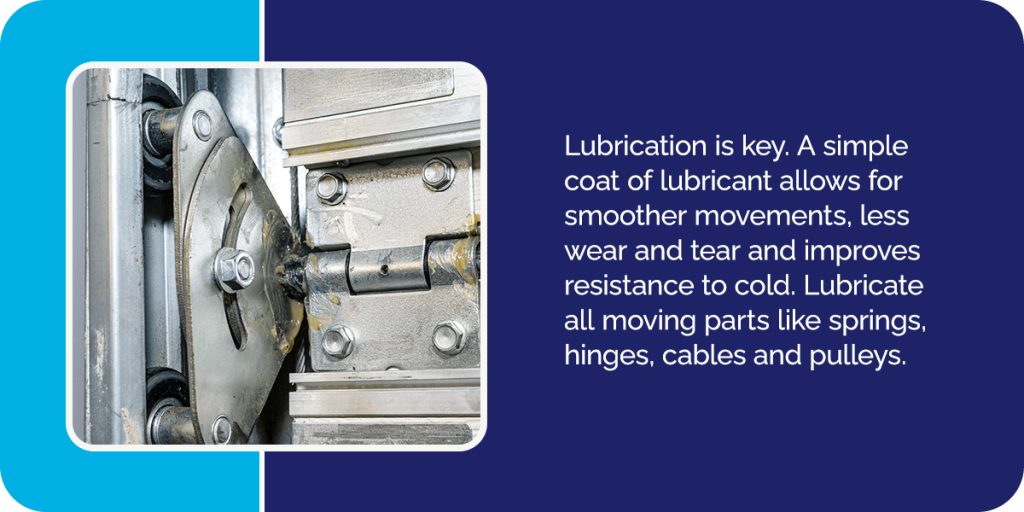
Lubrication is key. A simple coat of lubricant allows for smoother movements, less wear and tear and improves resistance to cold. Lubricate all moving parts like springs, hinges, cables and pulleys.
Avoid using thick grease. Grease that’s too thick can make your tracks sticky and build up debris.
You can do some routine maintenance activities throughout the year to ensure your garage door is always in tip-top shape the next time summer or winter comes around.
One of the best ways to maintain your door is to check your garage door hardware regularly. Look for signs of wear and damage that may have occurred during spring or fall. Your inspection should include the following tasks:
Maintenance can be done at any point in the year, such as changing lightbulbs and batteries. Replacing these components reduces the chance of malfunctions occurring.
To check the batteries on your garage door opener, unplug the opener and try using the remote or wall button to open the door. If the door doesn’t open, you need to replace the opener batteries.
You’ll also want to replace the lightbulb if it’s gone out. It’s a good idea to have a reserve of backup batteries and bulbs for convenience’s sake.
If something seems off about your garage door at any point during the year, call an expert to inspect the door and give you advice. Some garage door services offer free on-site estimates.
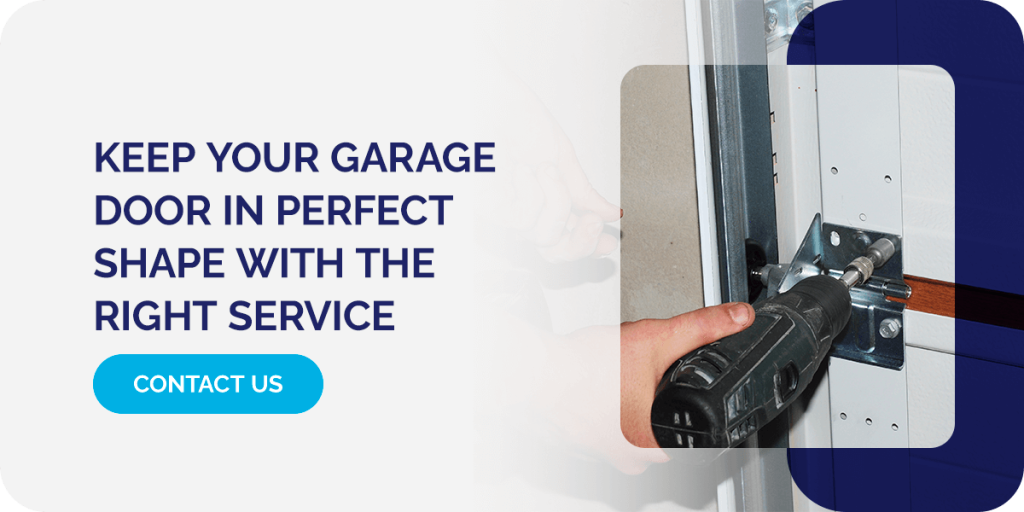
Viking Overhead offers high-quality garage door services. We made this garage door care guide to help make your maintenance easier to plan and to reinforce how much you can do to keep them in good condition. Viking Overhead is a veteran-owned and-run business with over 30 years of experience. We provide 24/7 emergency door repairs and commercial and residential garage door services. You can call us anytime for free on-site estimates and professional advice.
Get in touch by calling us at 817-609-8375 or by filling in an online contact form today.